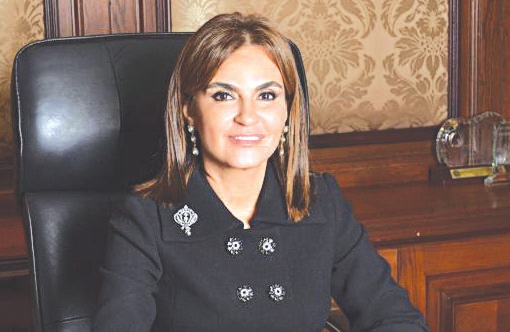It was one of the first lectures of my American professor at the American University in Cairo when he said: “I am here, teaching you because I failed to be a media professional, as no media professional would choose to teach rather than being out there in the field.”
Since then my professor imprinted a dogma in my brain at least for media; there are those who do and those who watch to teach what others do. But it seems this Egyptian woman has broken this dogma for me. Not only that she has been a professor of economy at the American University in Cairo since 2002 publishing over 60 research papers, technical reports and books in the fields of international finance, economic development, private sector, SME development, financial reform, the labour market, women empowerment, and economic legislation in scientific periodicals including those of Cambridge, Oxford University, Berkley University, and the World Bank, but she also has maintained a professional career by working for the World Bank for 17 years in many programmes centring around SME investment projects in Egypt and the region.
In 2015, she was hand-picked by president El-Sisi to be the Egyptian minister of International Cooperation where she managed to pull around 24 billion dollars of Saudi investments and funds agreements in addition to successfully engineer packages of development loans that mounted to 4.7 billion dollars from IMF and other international entities in only 6 months’ time. Perhaps this go getter performance is what motivated the Egyptian president in early 2017 to name her as the Minister of Investment in addition to the minister of International Cooperation, this appointment was followed 4 months later by another appointment on the high level Advisory Board of United Nations Development Program’s (UNDP) Social Impact Fund, making her the first woman from the continent of Africa to join this prestigious board. So, what is Mrs. Nasr doing to catalyse investments into Egypt? in a plan published by Youm El-Sabee last March the ministry under her leadership stated that it is executing a 3-year plan that includes legislative reforms speared by a new investment law that she received a parliament approval for in May 2017 after two years of investors’ anticipation. On that front, she also presented a new bankruptcy law to parliament pending approval among other financial and commercial law bills aiming at achieving a more attractive investment climate in Egypt.
A second part of the plan comprises of a devised investment plan that highlights opportunities in public and private sectors, success stories, investment infrastructure and government logistical services and incentives. A third part is the actions required from the Egyptian government to increase Egypt’s rank in the international business friendly countries’ indexes, actions that include more convenient real estate registration procedures, ownership conflict disclosures, more transparency in obtaining ownership information, and the establishment of collateral registry to facilitate business loans.
It is no secret that one of the major battles the Egyptian people has fought against the radical Muslim brotherhood group in the 30th of June revolution was the women’s rights battle. It is no secret also that the Egyptian women showed their recognition by constituting about 55% of total voters for the constitutional referendum after the revolution and 54% of total voters who elected El-Sisi. Nevertheless, Mrs. Nasr took the Egyptian women political contribution to a different level, an Executive leadership level on one of the most important needs of the country; the revival of a battered economy. A contribution I am sure we would have never witnessed had the brotherhood stayed in power.


